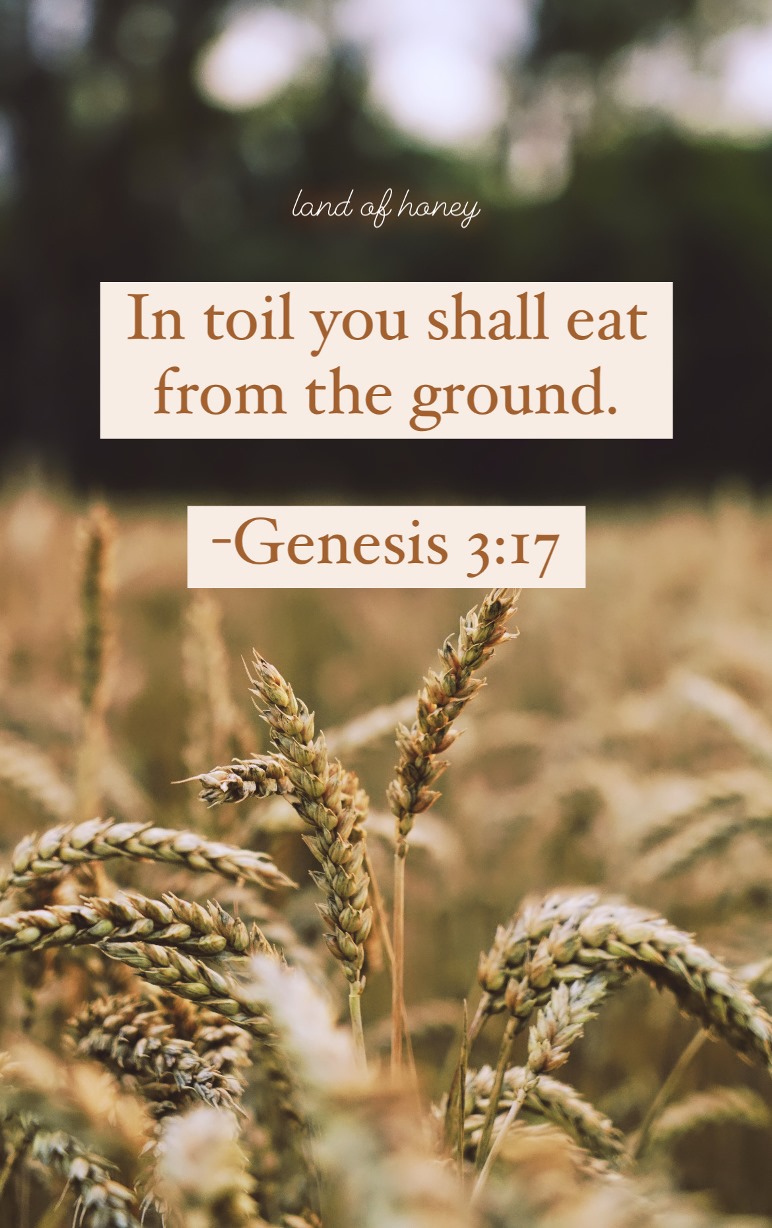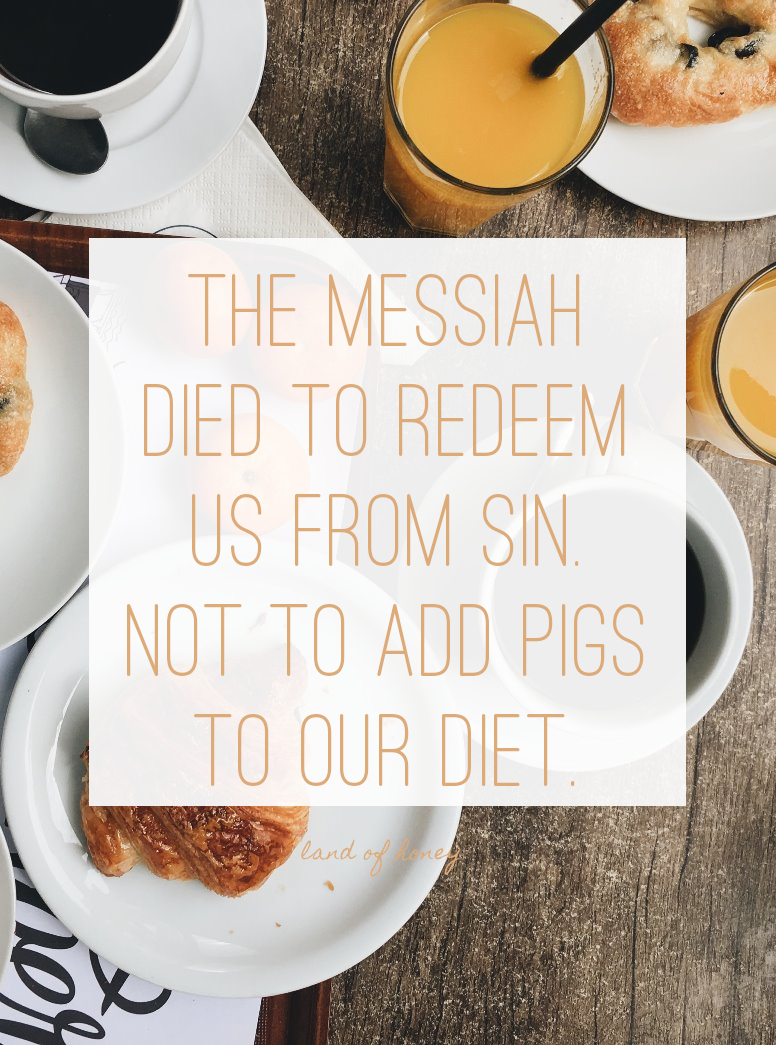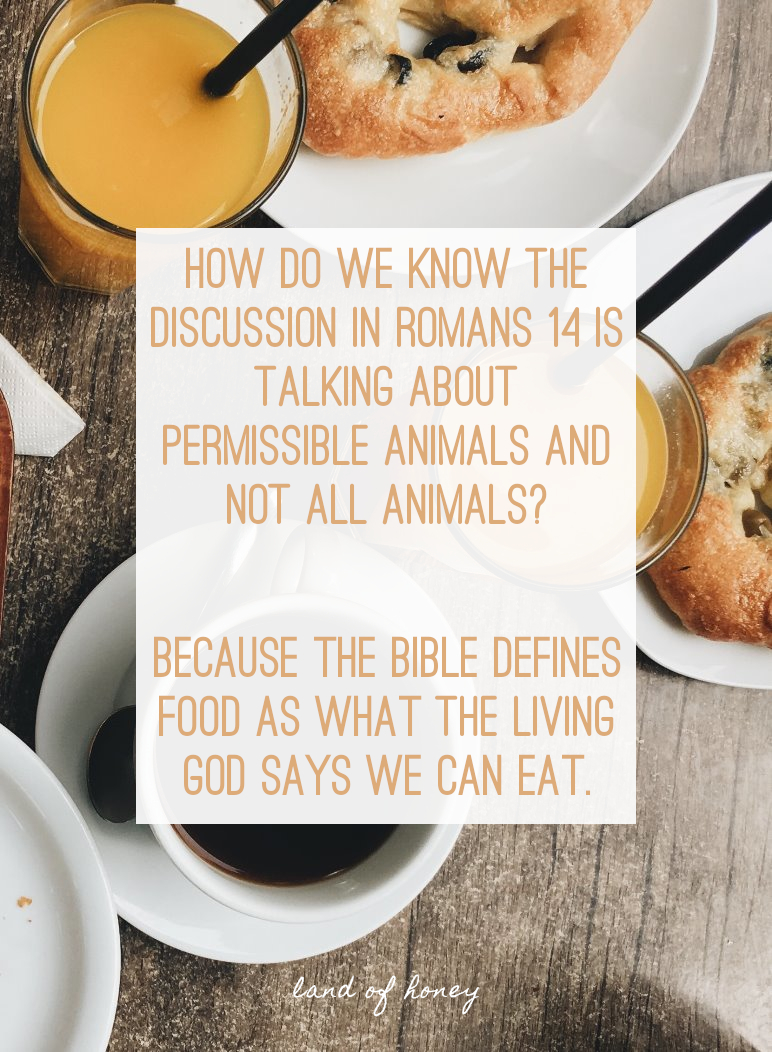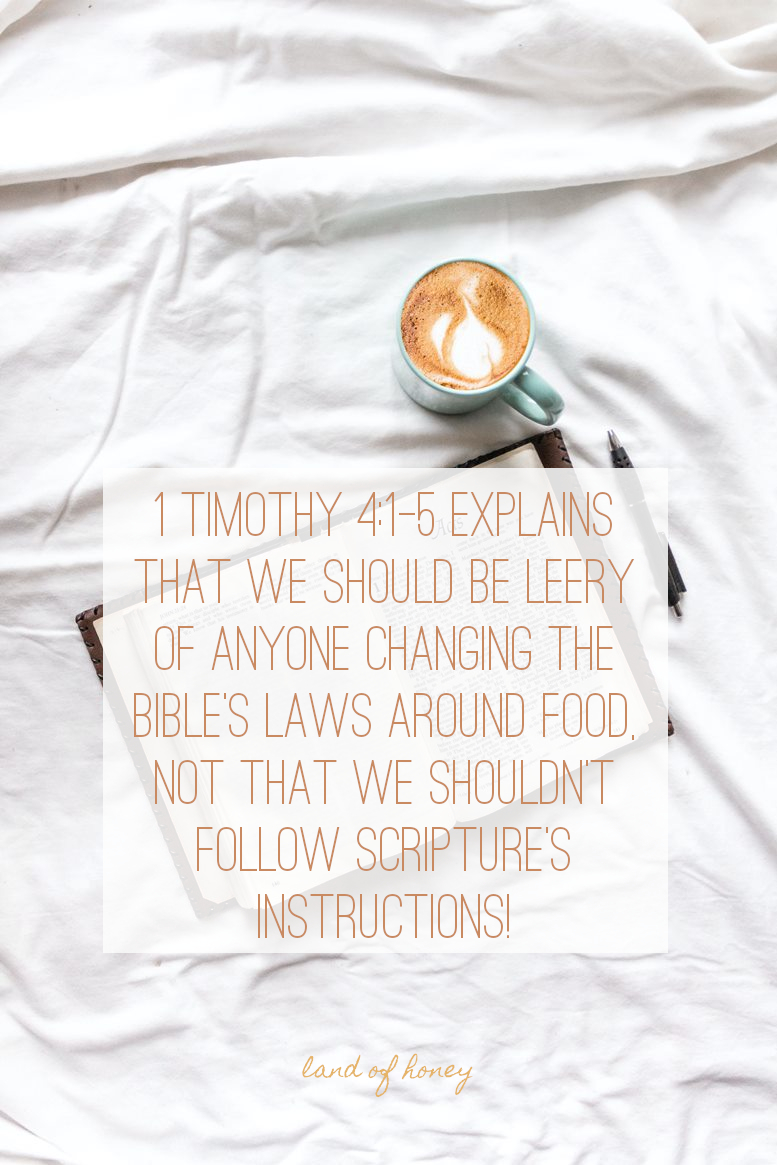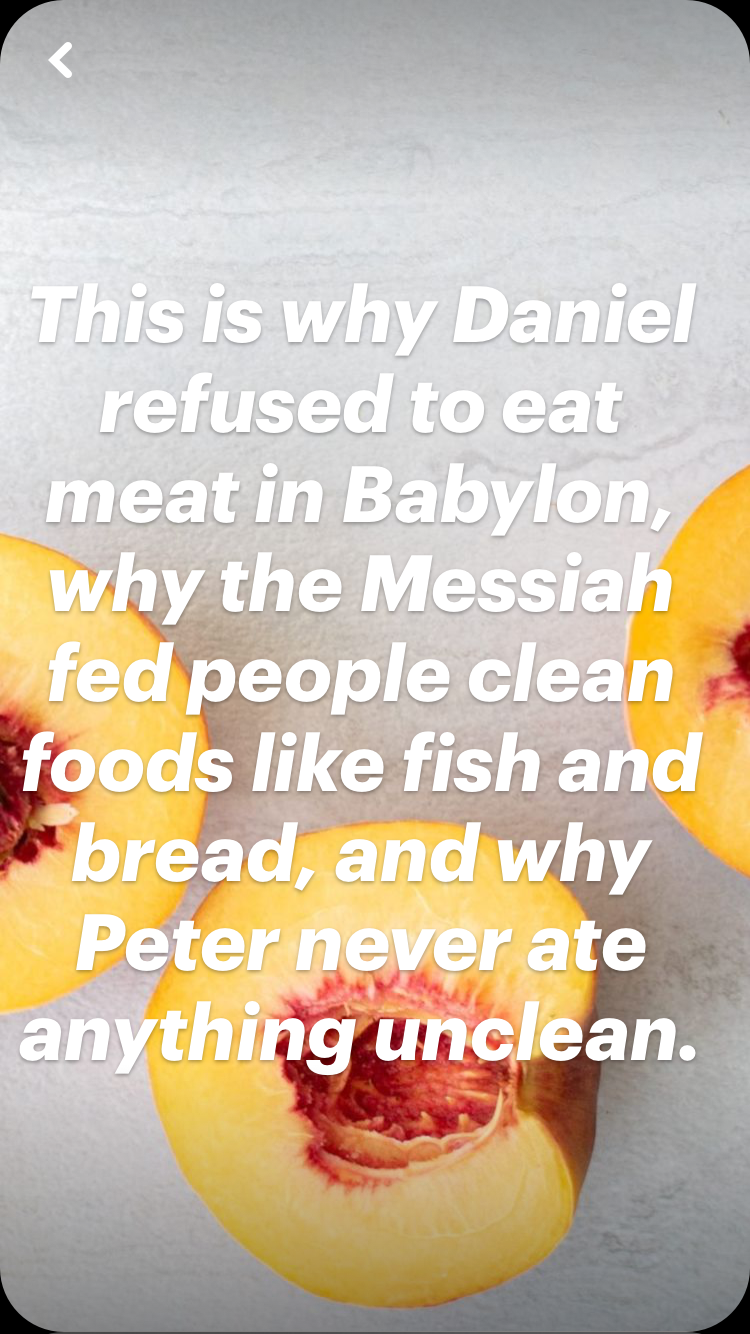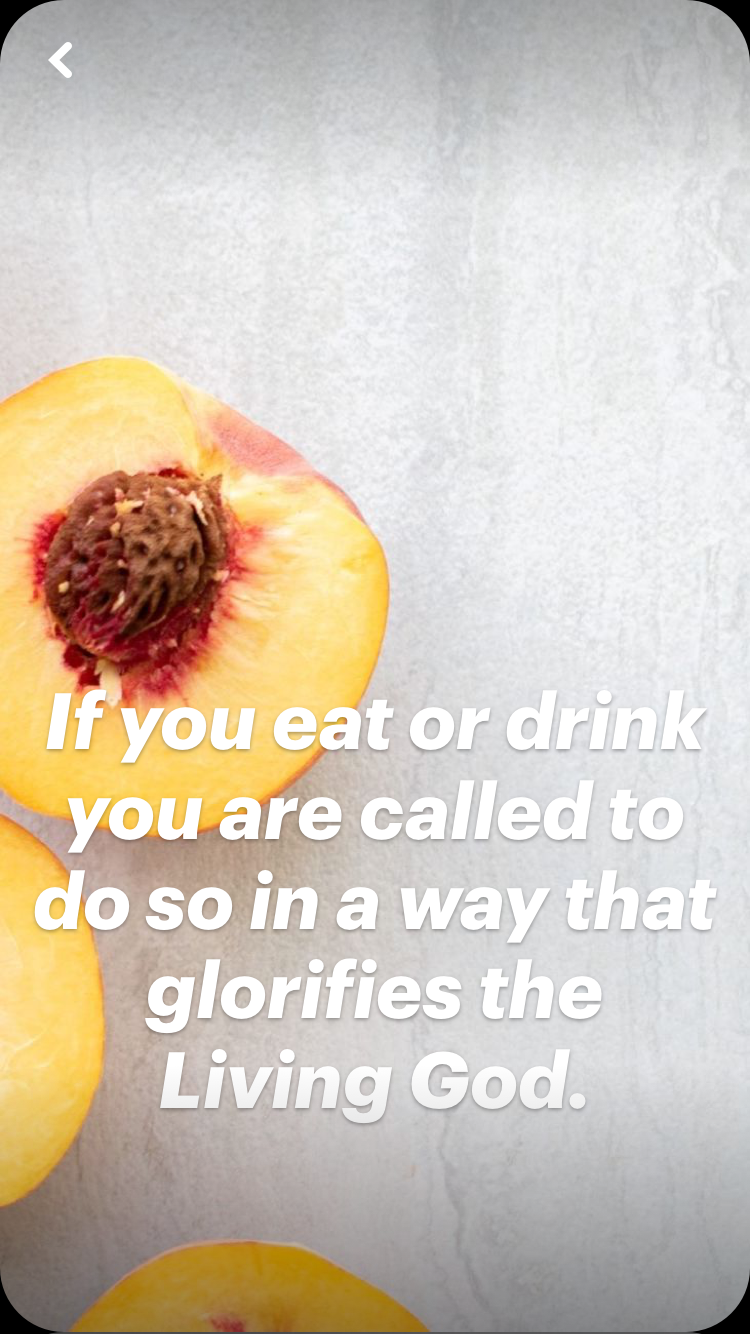This post explores what the Bible really says about veganism and whether believers must adhere to a vegan diet or not. Discover Biblical perspectives on dietary choices.
Does the Bible say that believers have to or "should" have vegan diets? What does Scripture say about veganism? If you're not familiar, veganism is a diet that only allows for plant based foods. No animal products, including meat, fish, eggs, honey, or dairy products such as milk, cheese, butter, yogurt, etc. are to be eaten by vegans. There are people who will tell you that the only way to truly eat Biblically is to have a vegan diet, but this belief is not consistent with Scripture. To cut to the chase, to say that the Bible says that believers have to be vegan is blatantly against the teachings of Scripture. It is Biblically permissible (and sometimes a requirement) to have animal products in our meals.
Many people look at YHWH's directive to Adam and Eve to eat the fruit of the trees of the garden of Eden as a sign that this was God's original plan for mankind, and therefore his preferred option for us now. It's true that Adam and Eve were initially on a vegan diet, but it was very different than modern veganism. Adam and Eve ate only tree fruit. Since the ground wasn't tilled until after the fall, there would have been only perennial plants in the garden of Eden. Today the majority of most of the food we eat is made up of annual plants, not perennials. Annual plants include things like most grains, corn, soybeans, tomatoes, cucumbers, cabbage, melons, beans, and a substantial portion of foods commonly eaten today. In order to truly eat like Adam and Eve, you would have to eat only tree fruit that is in season in your area. (You could also make the case that you would need to tend and harvest this fruit yourself.) Unless you live in the tropics, the season for tree fruit is only a few months of the year.
Adam and Eve were also naked in the garden of Eden. That does not mean going around nude is an appropriate choice for believers today. In cold temperatures exposure can be deadly. While nakedness may very well have been ideal at the time, we can all agree that that would not serve us well today.
If we look at the whole of Scripture, it quickly becomes apparent that while Adam and Eve may have eaten only plants, that's not a requirement for others. And since it's not a commandment of the Bible, it is wrong to act like or tell others that veganism is something that God expects of people today. Way too many people have been told that a vegan diet is the only way to please God. This is no different than the Pharisees claiming that before eating you had to do a ritual hand washing that they invented in order for food to be clean (Mark 7, Matthew 15). Neither is a commandment of Scripture. We know that the Messiah did not tolerate any stand-ins for Biblical instruction.
We will take a look at Bible verses that demonstrate that veganism is not a commandment.
Biblical evidence that veganism is not required of believers:
-The Bible articulates in concise language which animals can and cannot be eaten. If all animals were forbidden to believers, Leviticus 11 would be a much shorter chapter. It would simply say not to eat animals or animal products. But it doesn't say that. It tells us which animals are appropriate for food.
-Abraham and Sarah served milk, curds, and meat to their supernatural visitors - and weren't reprimanded for it. (Genesis 18:8)
-All believers were given the directive to eat lamb or goat on Passover. (Exodus 12:8)
-YHWH provided quail for the Israelites when they wandered the desert. (Numbers 11:31)
-The promised land is repeatedly described as a land of milk and honey...neither product is vegan. (Exodus 3:8, Leviticus 20:24, Numbers 13:27, Jeremiah 11:5)
-The Levitical priests were provided with meat from certain animal sacrifices, as directed by Scripture. (Leviticus 7:8)
-Animal products are frequently spoken well of throughout Scripture. The Torah is compared to both milk and honey...how crazy would it be for the Bible to liken the word of YHWH to something forbidden, or considered less than ideal?
-The Messiah's example of a "good gift" was an egg. (Luke 11:12)
-The Messiah himself served fish both before and after his resurrection. (Matthew 14:19, John 21:9)
-In Acts 10 when Peter had the vision of animals being lowered on a sheet and heard the words, "Kill and eat," his response wasn't that he had never eaten any animals, but that he hadn't eaten unclean animals.
-The shepherding culture of Israel...and before anyone tells you that they just kept sheep around for the wool, see 1 Corinthians 9:7, "Who tends a flock and does not use the milk of the flock?"
These are just a few of many examples in the Bible about why veganism is not necessary or required for believers.
Balancing dietary choices with Scripture:
Now you can make an argument that you could eat only plant based products because the Bible doesn't say that you can't (although note that in Exodus in order to keep Passover, you ate lamb), and that choice is up to you. If you're eating at a restaurant, dinner party, or event where abominable animals are being served, sticking with vegan options can be an appropriate way to eat Biblically, as Daniel did when he was captive in Babylon. However, there being certain situations where only plants are eaten does not mean that this is a commandment of God. Whether or not you are a vegan, it would be wise to be mindful of the problems that have sprung up from this diet today.
Causes for concern about believers adhering to a vegan diet:
-Many vegans perpetuate the lie that veganism is a commandment when it is not. Veganism is a personal choice, nothing more.
-Often vegans emphasize how sad they find it that animals are being harvested for food. Acting like animal-consumption is cruel is an affront to the character of God who said this was okay. Dread of animal death is also a good way to skew the meaning of sacrifice in the Levitical priesthood, which can ultimately lead to misunderstanding the Messiah's sacrifice.
-The virtue-signaling is nauseating. I've met believers who are vegans who will talk about very little besides veganism. I've been excited to connect with others only to have the conversation be nothing but moral posturing and put-downs as people believe they are somehow above others and earning extra points with God for their veganism. To be clear, veganism does not get you extra points with God, just as Jesus did not give extra points to the Pharisees for their pre-meal rituals. Focusing too much on a specialty diet in conversations is a poor witness to others.
-Many people who claim to be vegans are not. Many "vegans" will talk continually of their diet and it's supposed superiority to what others eat, and then may knowingly help themselves to a dessert or other dish that is filled with dairy or meat at a congregational potluck. If you tell people that you don't eat animal products, and then you intentionally eat animal products, you are not a vegan. In fact, you are a liar. Again, this is a poor witness to those who already see people of faith as very hypocritical.
-This is a self centered belief. Sure, if you're doing well in America today, it's relatively easy to go to a corporate grocery store and fill your cart with ready-to-eat vegan foods, and subsist only on them. But for most of history, it was simply not possible to survive, let alone thrive, without including any animal products in your diet. This is still true in many parts of the world today. It should give us pause if this supposed instruction of Scripture is only obtainable to those of a certain socio-economic status or geographic location!
-It places a huge stumbling block in front of others! We need to be careful that we do not place unnecessary obstacles in front of other believers or, as the Messiah said, "weigh them down with heavy burdens and not lift a finger to help them." We have no right to burden others with extra rules that are blatantly against what the Bible teaches - Jesus took issue with the Pharisees for doing just that in Mark 7. Just cutting pork and shellfish out of meals is extremely challenging for most people - and it's an effort that deserves to be celebrated! We should not treat a Biblically clean diet with meat and dairy as some sort of lesser option.
Eating only plants is not a commandment and should not be treated as such. The Bible does not call for a vegan diet. This creates the opportunity for people of all cultures and locations to honor YHWH by eating how he says, in a way that also makes sense with their local ingredients. According to Scripture, we are free to eat meat, fish, eggs, and dairy products from the animals in Leviticus 11.
Related posts:
Understanding Mark 7 (Jesus Made All 'Foods' Clean)
What the Bible Says about Meat and Dairy - And If They Can Be Mixed
How to Eat Biblically Clean
Why Daniel Refused to Eat the King's Meat
.JPG)
.JPG)
.JPG)
.JPG)


